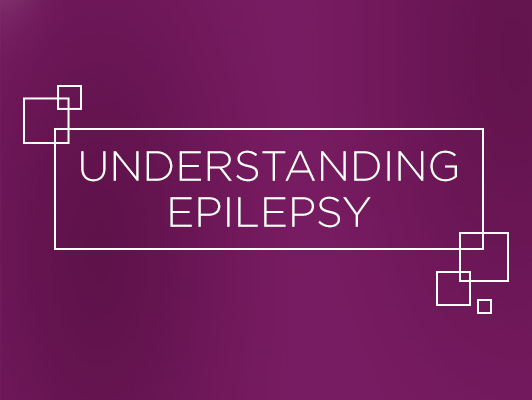Understanding epilepsy

According to the Epilepsy Foundation, 1 in 26 people in the United States will develop epilepsy at some point in their lifetime.1 A seizure can happen without warning and look different depending on where in the brain the seizure takes place. Think of it as an electrical thunderstorm in the brain. An epilepsy diagnosis is appropriate when an individual has more than one seizure that was not caused by a trauma to the brain. Epilepsy treatment includes medication and/or surgery.
Six out of ten people with epilepsy do not know what brought on the seizures.1 Some causes could include a tumor, stroke, or infection in the brain.2 These seizures can occur suddenly and typically last from 30 to 90 seconds.
Signs of a seizure
There are different types of seizures. Some individuals experience loss of consciousness, while others experience loss of senses. Common signs to watch for include:
- Convulsions that occur suddenly.
- Falling to the ground.
- Staring off.
- Trouble seeing or hearing.
- Trouble speaking.
- Rigid or limp muscles.
How to help someone during a seizure
- Remove any furniture or objects around them.
- Do not try to hold them down.
- Try to turn them on their side after seizure ends.
- Do not leave them alone.
- Call 911 if a seizure lasts longer than five minutes or if another occurs a few minutes apart.
- Call 911 immediately if the individual is pregnant.
Managing epilepsy
- Anticonvulsants are the most common medication prescribed for seizure disorders such as epilepsy. It is important to track and communicate with health professionals regarding medication management and side effects.
- Track seizures to pinpoint triggers that may have brought on the episode. Trackers and journals are a great way to record what was happening before, during, and after a seizure.
- Sticking to a medication regimen and working closely with a doctor or neurologist to address medication side effects and treatment options is crucial. For this condition, prescribed medication must be taken at the same time each day. Talk with your doctor about making a plan for medication management.
Resources
- Epilepsy Foundation. epilepsy.com
- UPMC Patient Education Materials. http://www.upmc.com/health-library/Pages/HealthwiseIndex.aspx?qid=hw108148#hw108150



